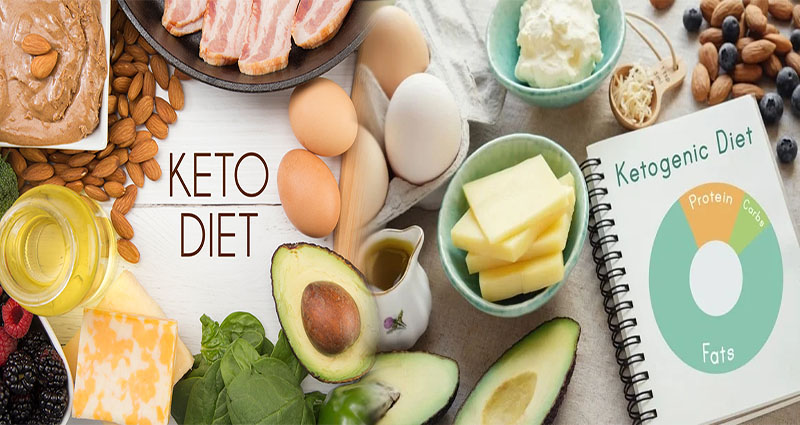The ketogenic diet is a high-fat, medium-protein and low-carbohydrate nutritional plan. It can help you lose weight and improve health. The keto diet has been around for decades.
The ketogenic diet is a high-fat, medium-protein and low-carbohydrate nutritional plan.
The ketogenic diet is a high-fat, medium-protein and low-carbohydrate nutritional plan. It’s not for weight loss but rather to treat epilepsy in children and adults.
The ketogenic diet is not only effective at treating seizures, but it also helps improve body composition by reducing body fat while preserving lean muscle mass.
It can help you lose weight and improve health.
The keto diet is a low-carb, high-fat eating plan that can help you lose weight and improve your health. This article will explain how the diet works, how it can help you lose weight and improve your health, and what to know before starting the keto diet.
It makes your body run on fats instead of carbohydrates.
Ketones are produced from fat, and they’re a primary source of energy for your body. When you eat a low-carb diet, your body starts producing ketones as an alternative fuel source. Keto diets are generally high in fat and moderate in protein; they restrict carbs to less than 50 grams per day (which is about the amount found in half an ounce of nuts).
The fact that ketogenic diets can be used for weight loss isn’t just because they reduce hunger; it’s also because they cause greater satiety than other types of diets do!
You don’t have to count carbs or calories when you’re eating a keto diet.
- The keto diet is a high-fat, low-carb eating plan. As such, you can eat as much fat as you want and don’t have to worry about counting calories or carbs.
- One of the biggest misconceptions about the ketogenic diet is that it’s all about cutting out carbs and eating more protein than usual. While it’s true that many people who follow this plan do cut back on their intake of carbs (and sometimes also increase their protein intake), there’s an important distinction between what happens when someone starts following this way of eating versus what happens when they stop doing so: When someone cuts out carbs entirely but then reintroduces them later on in their journey toward better health, there’s often an immediate gain in weight because those extra calories were coming from somewhere–and now they’re back again! That doesn’t mean it isn’t possible for someone who has been following a low-carb approach for months or years at a time without any noticeable changes in body composition; but generally speaking when we talk about diets like Paleo vs Keto vs Mediterranean etc., these aren’t things we’re recommending anyone do forever unless they’re working specifically with us here at Body By Science HQ
The keto diet has been around for decades.
The keto diet is a low-carb, high-fat eating plan that’s been around for decades. It was first developed in the 1920s as a treatment for epilepsy and later used to treat people with diabetes. In recent years, it has become popular among athletes, bodybuilders and Hollywood stars who want to lose weight fast.
The basic idea behind this eating plan is that your body burns fat instead of carbohydrates for energy when you’re in ketosis–a state where your liver breaks down fat into ketones that can be used as fuel by cells throughout your body (1).
The ratio of fats, protein and carbohydrates in a typical keto diet is 65 percent fat, 30 percent protein and 5 percent carbs.
The ratio of fats, protein and carbohydrates in a typical keto diet is 65 percent fat, 30 percent protein and 5 percent carbs. A typical keto diet includes:
- 70% of your calories from fat, 25% from protein and 5% from carbs.
- 60% of your calories from fat, 35% from protein and 5% from carbs.
There are also other variations that may work better for some people; you can customize your own plan by choosing foods that fit within your daily calorie needs while staying within the recommended ratios (see below).
On the keto diet, you can eat meat, eggs, healthy fats, nonstarchy vegetables and some nuts like macadamia nuts, cashews and almonds (but not peanuts).
On the keto diet, you can eat meat, eggs, healthy fats, nonstarchy vegetables and some nuts like macadamia nuts, cashews and almonds (but not peanuts).
Meat: The best sources of protein are grass-fed beef or wild game meats like venison or elk; fish such as salmon or tuna; poultry like chicken or turkey breast without skin; pork loin roast with fat trimmed off; pork tenderloin trimmed of all visible fat (no more than 1/4 inch thick); lamb chops without visible fat on either side of bone.
Eggs: Whole eggs (including yolks) are allowed in moderation on a ketogenic diet because they’re high in fat but low in carbohydrates which makes them ideal for those who want to stay away from high sugar foods while still getting enough energy from their meals throughout the day without having to rely on other types of foods such as breads/bagels etc…
You can also drink alcohol in moderation while on the keto diet. In fact, wine is one of the few types of alcoholic beverages that are allowed on the keto diet because it has very little carbs. Just make sure you don’t overdo it — no more than one glass per day for women and two glasses per day for men!
While it’s true that you can drink alcohol on the keto diet, it’s important to keep in mind that moderation is key. In fact, wine is one of the few types of alcoholic beverages that are allowed on the keto diet because it has very little carbs. Just make sure you don’t overdo it — no more than one glass per day for women and two glasses per day for men!
What types of alcoholic drinks are acceptable? Wine (both red and white), spirits like whiskey or vodka (in moderation) and beer (low-carb varieties).
What amount counts as moderate consumption? That depends on your weight and gender; see our chart below:
The ketogenic diet is a low-carb plan that can help people lose weight
The ketogenic diet is a low-carb plan that can help people lose weight. It’s high in fat, moderate in protein, and very low in carbs.
The keto diet can improve cholesterol levels, blood sugar control and insulin sensitivity.
The keto diet is a great way to lose weight and improve your health. It’s easy to follow and it won’t leave you feeling hungry all the time. If you want to learn more about this nutritional plan and how it works, check out our article on understanding the keto diet!












